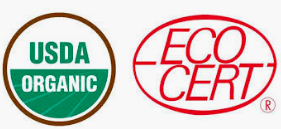Vanilla Laws, Customs, Regulations in Madagascar
- All vanilla leaving Madagascar for export must be registered with a company on the exporter list, which reads as of 2018 about 149 companies
- All vanilla leaving Madagascar must be accompanied by a phytosanitary certificate and customs form
- All vanilla leaving Madagascar must be filed with customs with an invoice and a proof of the client’s bank transfer or payment (the exception are samples)
- All vanilla samples leaving Madagascar are allowed to be no larger than 1.5 kg
- All vanilla leaving Madagascar after the start of the export season (around October 15th generally, set by the government each year) must be labeled as that year’s season harvest. All prior to October export start date are registered stock of that last year’s harvest
- Vacuum packing is forbidden for export in Madagascar
- Vacuum Packing within Madagascar for storage is legal
- While it is not illegal to sell vanilla cheaply or too expensively, customs causes problems and raises questions for exporters purporting to sell their vanilla at very low prices for export, since they generally suspect that the balance is being paid in offshore banks (as it often is, in order to devalue the invoice and diminish taxable revenue.)
- All vanilla over 38% humidity, green, young, of pampona or other species, or with mold is forbidden for export
- All vanilla that is young or green is forbidden for export from Madagascar without a waiver for research or other exceptional circumstances
- All tourists may take up to 2 kilogram (2kg, or 4.4 pounds lbs,) of vanilla. This used to be 8 kg, and some still carry out more. The airports authority says 2 kg as of 2018
- It is forbidden to domestically transport vanilla within Madagascar by commercial carrier in your luggage, according to the airport authority. However, this is rarely if ever enforced at security
- Vanilla must export at the SIGOC and MOC-mandated minimum price per kg in USD terms, when and where that price floor exists. A total of a lump sum of a stratified set of inbound wire transfers tagged to that price must add up by the export deadline to the total price per kg. The total of the tagged transfers are tagged against the order on file with the government.
- Vanilla must adhere to the proximate general triage type it is declared at, in the box, in order to be allowed out of Madagascar. The type of vanilla beans cannot be misrepresented or diminished in order to enable a lower export price.
- Exhausted vanilla powder is still considered a vanilla derivative that constitutes plant matter and must obey the same export rules as other vanilla. Vanilla extract and paste and chocolates and other combinations are considered other categories with other licensing requirements, or lack thereof, to export.
- Vanilla must be exported after the legal export season start date and before the legal export season end date or declared as stock before the legal end date, if to be considered that contiguous season’s harvest.
- Vanilla artisanal licenses are granted on a case by case basis for small or medium quantities of vanilla beans, some years. These are distinct from large industrial licenses.
- Vanilla is taxed 3 times in total – on the remittance of order payments against a particular export, again upon the export of vanilla beans, and lastly on the end of the year revenue or income of the exporter (which one of the two depends on the revenue authority’s discretion and decision.)
- Vanilla green plants and cuttings cannot be legally exported without a special paper and authorization.
- All Madagascar Vanilla Exporters must have on file and submit with the government:
- Tax identification number
- Up-to-date tax card
- Statistical identification number
- Trade and Companies Register
- Currency Repatriation Commitment Letter
- Bank Domiciliation Certificate
- Commitment on the fight against Child Labor issued by the DFOP
- Letter of provision of land and the Store
- Certificate of existence of the storage warehouse issued by the Fokontany
- Manager’s Certificate of Residence
- CIN photocopy of the Manager
- 2 recent ID photos of the Manager
- Status of the Company
- Exact contact details of the company and of the first contact of the administration for the file
- Storage warehouse control grid issued by the Quality and Packaging Service / the Control and Packaging Stations of the Ministry of Industrialization, Trade and Consumption
- Copy of the verification sticker for measuring and weighing instrument
- History of the activity of the Company
OVER THE PAST DECADES, SOME OF MVC’S STAFF IN YEARS PRIOR WORKED IN PRIVATE SECURITY, US GOVERNMENT SECURITY, LAW ENFORCEMENT, ANTI-NARCOTIC, ANTI-WILDLIFE TRAFFICKING FORCES IN MADAGASCAR.
WE HAVE CONSULTED IN VANILLA SECURITY AND DISPUTES AND LEGAL MATTERS, AND HAVE A LONG STORYBOOK OF SCRUTINY AND SURVEILLANCE IN SAVA PERFORMED FOR OTHER VANILLA COMPANIES IN THE COMMUNITY.
HERE ARE SOME ADVISORIES OF CAUTION WHEN DEALING WITH VANILLA IN MADAGASCAR, IF YOU ARE NEW:
We recommend to all our clients to make provision and clarifications to their end retailers about some of the minefields out there in the business, and with their order terms, and their attorneys, their agents and their marketing.
Here is a list of the things that can – and do, happen to first-time collectors and buyers coming to Madagascar. We have handled these matters for others in the industry and can advise and help you if you have been victimized:
- The buyer pays the first few orders on time, with escalations in order volume, but then on the 3rd, 4th, or 5th order, feigns pressure, takes the beans and disappears paying nothing.
- The buyer offers 70% and 30%, never planning to pay the 30%, or similar with 50/50 terms.
- The seller bringing no vanilla and claiming theft when sold to other actors on the way
- The seller bringing false vanilla and claiming a 3rd party switched it when sold to another on the way, and the seller profits.
- The seller bringing very bad vanilla that the exporter doesn’t want to export or even be associated with.
- The seller bringing good vanilla but bribing somebody in Tana for a seizure, and splits the fine/beans w tana auth
- The seller brings the correct vanilla but the end client complains to the middleman who then tries to say the seller made a mistake.
- The end user purchase order is not honored and client doesn’t pay the bill to the seller, as they never had liquid cash in the first place and were counting on funds from their end client.
- Vanilla is packed with illegal goods or tied to organized crime or money laundering
- Vanilla arrives but price has gone down and the buyer wants to renegotiate price after having received the vanilla
- The exporter sends the beans back to the field due to beans not being accepted, and the transporters demand compensation for wasting all parties’ time.
- Freight problems and disappearance of vanilla in ocean containers or private planes.
- Liquid funds being locked in Madagascar which is not fully integrated into world banking.
- Orders are moving fine but end user suddenly manufactures some pressing deadline yelling about it when there is none to get a reduction on price from the Malagasy.
- EU, KFDA, FDA, or customs seizes beans or rejects it
- Airport closes due to COVID and beans appear frozen in freight or impounded
- Buyer imports vanilla but for whatever reason high duty on import, and importer seeks to pay the seller less.
- Somebody comes later after a shipment and says this vanilla belonged to them and was stolen.
- The buyer’s end client brings a claim against the buyer regarding their PO, and because the buyer misrepresented the seller’s vanilla, the buyer seeks to offload the liability on the seller, unduly when the buyer lied to the end client.
- Traders in the middle say something strange or made up.
- Vanilla thieves attack on the road.
- Buyer’s Business partners or investors get upset about something unrelated
- Buyer receives vanilla but wants to revisit order size and makes an excuse to return a portion of it by lying about rationale, when in truth their end client needed less vanilla.
- Vanilla photos are stolen on Facebook or from pro-forma invoice material and leads that appear as price spies online, followed by copying the documents in order to sell vanilla that is not actually in possession. Vanilla is never sent.
- Vanilla export documents and copies are stolen via Facebook, email, or WhatsApp, and used to “prove” (purport) stock that does not exist in that vendor’s possession. Vanilla is never sent.
- Vanilla company names or exporter names are used and a vendor purports to be a representative or member of that exporter, and even uses the branding and some fake documents with that name on it to elicit payment to a different bank. Vanilla is never sent.
- Vanilla is partially paid for to enable an outbound order export, but when the end user does not remit the payment to the reseller, the reseller never pays the balance to the exporter, making up an excuse as to some quality problem with the vanilla instead of telling the truth that they were not able to sell it and never had the secure business in the first place, but just hypothetical or promised sales.
- Amazon Dark Arts Attacks: Most vanilla sellers experience special customers who swear they knew the difference between all types of vanilla. Some have run-ins with competitors who commit commercial espionage or even sabotage online on Google and Amazon that try to throw a wrench in business. Amazon among all the other platforms is an absolute last resort for anyone. MVC supplies 47 Amazon stores at the moment with vanilla beans. From what we’ve seen and heard, it is not a sustainable business model. You give someone absolute control of your money and business. You can make short term gains but at a heavy price. If Amazon themselves aren’t bad enough to you, then you have your competition. Half of the problem is the “race to the bottom”. – In spices and for cash-rich multi-product sellers, they’ll undercut so bad to stay on top that no one will even profit sometimes just to try and force others out. The other part is that your more time-rich competitors will order your goods posing as customers and claim you sold them something that was other than what they were ordered. For instance they can order a $2000 designer dress, buy some cheap knockoff from some guy out of a van, return the item for a full refund, keep your authentic article, and sell it themselves for a huge profit. Amazon reacts quickly to stuff like that and will then suspend your listing/account for selling counterfeit goods. Amazon doesn’t listen nor give a dang what you have to say, and you end up getting screwed. After these black hat amazon dark arts, if your competitor really wants you gone, they’ll keep doing it until your account gets banned from selling on Amazon.












